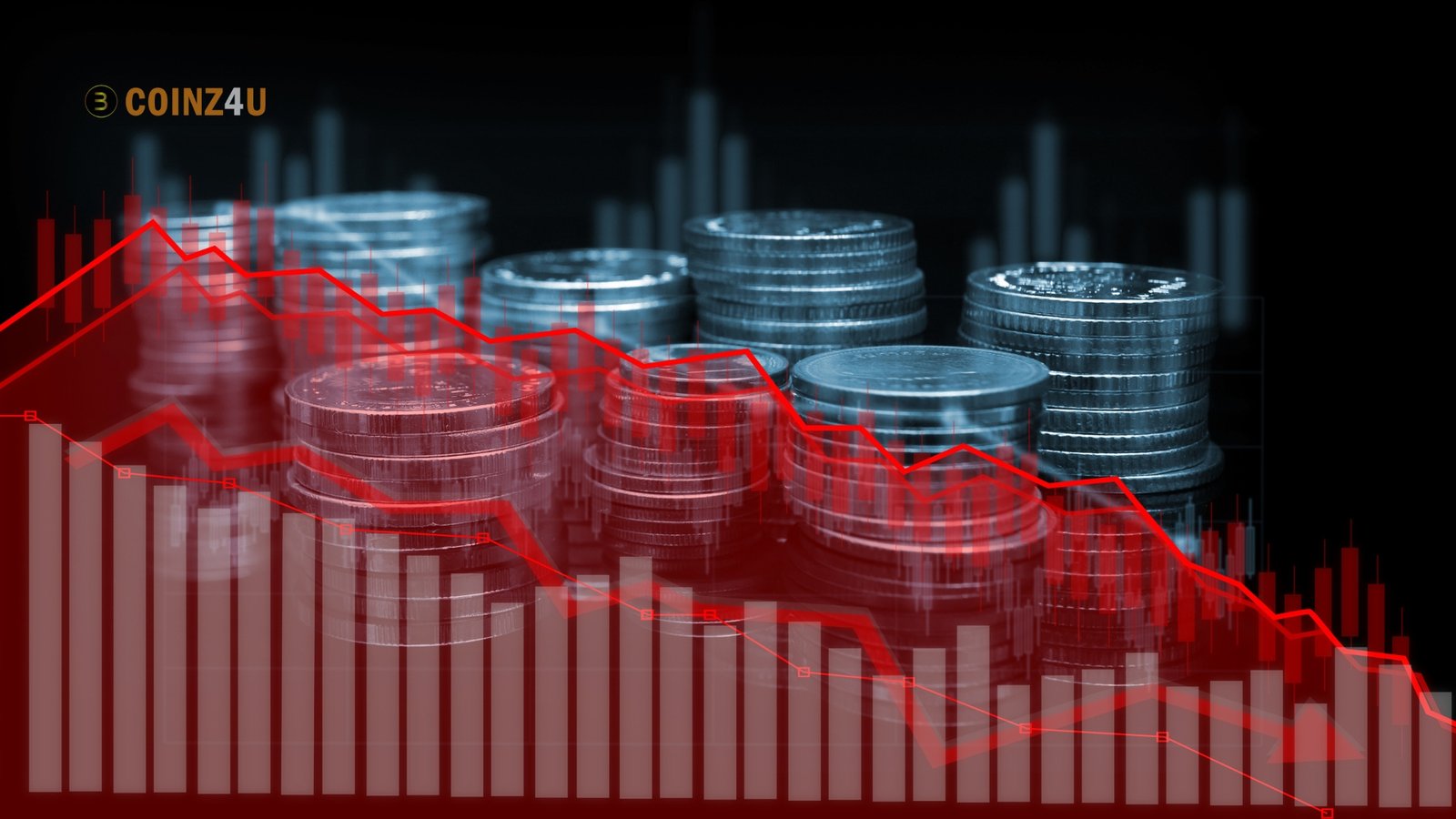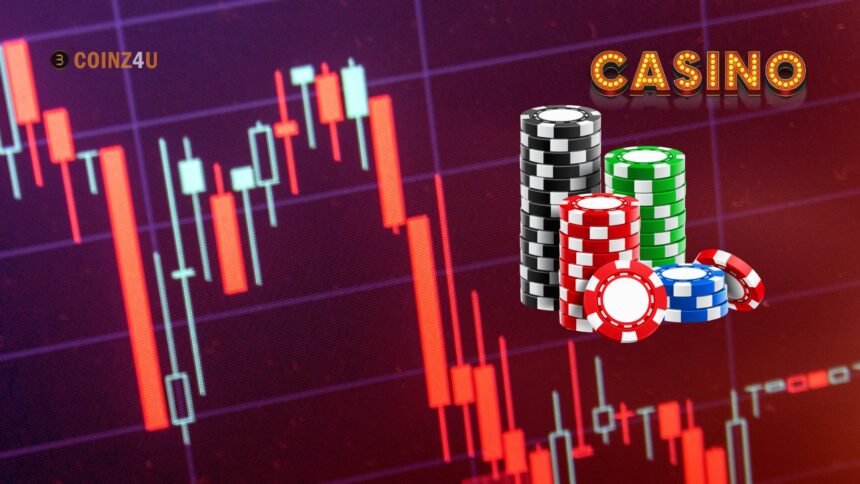Stakeholders and investors are alarmed by the recent sharp drop in casino stock values. The casino stock market crash appears to have been impacted by economic variables, industry-specific difficulties, and world events, even though the stock market is notoriously volatile. Knowing what caused this decline is critical for making educated selections for novice investors and seasoned pros alike. Today, casino stocks are falling for various reasons, and we’ll look at them all in this blog.
Economic Uncertainty and Recession Fears
Casino stock prices have fallen for several reasons, including the general economic instability. Several economies worldwide face challenges related to inflation, interest rate hikes, and the potential for a recession. The casino industry is highly dependent on discretionary spending, including entertainment and travel, when people cut back on their spending. Casinos’ income and stock performance are affected when fewer customers attend and spend money on gambling as a result of consumers becoming more careful with their spending.
Due to the central bank’s tightening monetary policy, businesses and households have seen borrowing costs rise. This prevents casinos from expanding or building new infrastructure, and fewer customers are willing to borrow money for gambling holidays.

Weakening Consumer Confidence
Aside from economic concerns, consumer confidence has dropped significantly, especially in regions with a high concentration of gambling establishments. Examining consumer confidence indices is a typical practice for determining the economy’s health and people’s spending habits. When people’s trust plummets, they cut back on non-essential activities, like coming to the casino, further reducing the influx of customers.
Fewer people have discretionary income for things like gambling, which exacerbates the already-weak confidence due to worries about job security and salary stagnation. Casinos, particularly those that rely on tourists, take a hit when people opt not to spend money on holidays that involve gambling meccas like Macau or Las Vegas.
Rising Interest Rates and Impact on Borrowing
Capital is essential for the casino sector to finance massive initiatives, builds, and renovations. A large number of casino operators utilize debt finance as a means of managing their business and funding development plans. Still, borrowing prices have skyrocketed due to interest rate hikes implemented by central banks worldwide to rein in inflation.
Casinos can’t expand or invest in better services since taking out loans or paying off existing debt is becoming more expensive. Casino stock prices fell because, when interest rates rise, investors avoid companies that rely largely on borrowing money.
As interest rates climb, many investors move their money out of riskier investments like casino stocks and into safer ones that offer greater yields. When investors’ attitudes change, casino stock prices can fall even more.
Increased Regulatory Scrutiny
The increased regulatory scrutiny in many regions is another reason casino stocks have fallen. Changes in legislation or rules can substantially impact the operations and profitability of casinos because of the industry’s high level of regulation.
In recent months, pressure from regulators in major areas, including the US, EU, and Asia, has been building. The introduction of stiffer limits on gaming licenses and controls on financial outflows by the Macau authorities, for instance, has cast doubt on the future of casino operators with substantial ties to the area.
Similarly, in the US, several states are getting tougher with rules for online gambling, sports betting, and building new casinos. A gloomy outlook for investors and falling stock prices result from increased regulatory impediments, which make casinos’ operations less free-flowing than before.
COVID-19 and Ongoing Health Concerns
Even though the COVID-19 pandemic has subsided, the virus is still affecting several nations. Many casinos had to close for a while or implement stricter health regulations because of the pandemic, which resulted in a significant drop in income for the company.
New viral strains can emerge anytime, and the areas most severely affected by the outbreak still struggle to recover. Extended travel restrictions might hit the gambling and entertainment industries hard during a COVID-19 pandemic or other new health disasters.
Even though they have reopened in most regions, casinos are nevertheless experiencing lower consumer visitation compared to pre-pandemic levels. Consumers’ continued health concerns make them hesitant to return to crowded indoor venues, sabotaging the industry’s recovery efforts.
Geopolitical Tensions and Global Market Volatility

The casino stock market is not immune to the far-reaching effects of geopolitical events like war, trade disputes, and diplomatic difficulties. As an example, international uncertainty and market volatility have been exacerbated by the protracted war between Russia and Ukraine. Stocks in the gaming and entertainment industries, considered riskier, tend to see a flight from unstable markets when investors feel this way.
Casinos are just one of many industries hit hard by the worldwide supply chain disruptions brought on by geopolitical conflicts. Since geopolitical crises can potentially decrease the number of tourists visiting key casino sites, these establishments have been hit especially hard. Stock values plummet due to reduced revenue caused by a drop in tourist traffic.
The Shift Toward Online Gambling
Online gambling platforms have been increasingly popular throughout the pandemic, while brick-and-mortar casinos are facing significant challenges. Online casinos have been increasingly popular among gamblers who like to play without leaving the house, thanks to their accessibility and ease.
Because of this, brick-and-mortar casinos are seeing their stock prices fall along with their market share as online gaming businesses gain ground. There have been several attempts by traditional casinos to expand into online gambling. Still, the established businesses in the industry provide such fierce competition that they can’t recoup their losses.
Final Thoughts
Casino stock values are falling due to regulatory scrutiny, internet gambling, economic instability, and recession fears. Since these characteristics make casino stocks difficult, investors are selling them. The casino industry is up against formidable obstacles, regardless of whether stock prices rise or fall in the future. Keep a careful watch on the shifting economic landscape, new legislation, and changes in consumer behavior to determine the probability of a casino stock rebound.
Also Read: Bitcoin Casino Instant Withdrawal USA Future of Online Gambling
[sp_easyaccordion id=”3263″]









